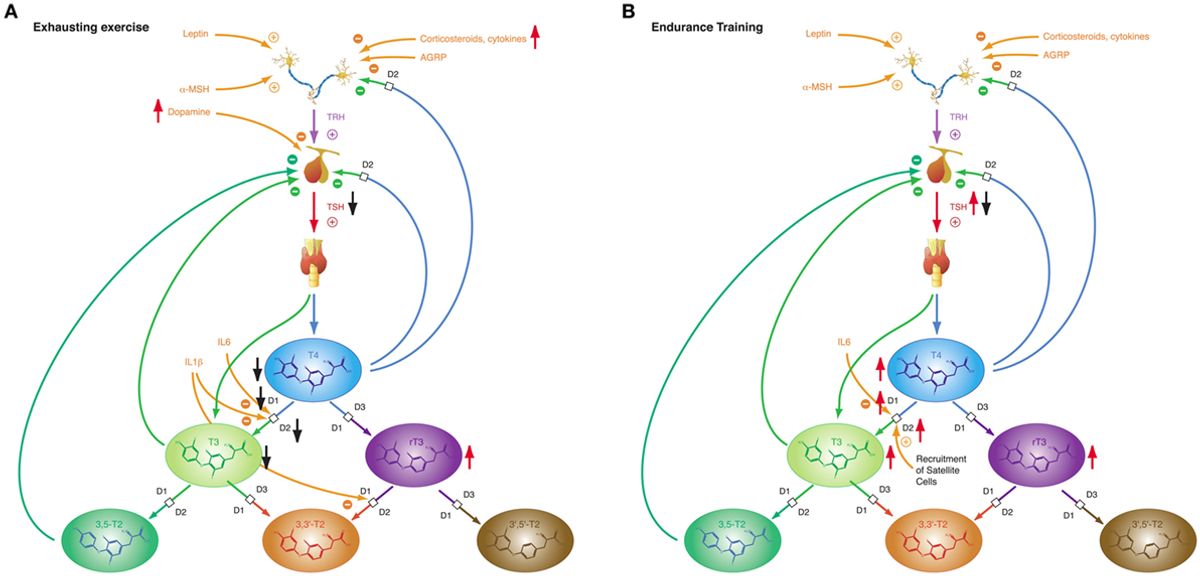
Maximizing Muscle Recovery After Weight Lifting: Tips and Techniques
Fueling Up: Nutrition for Muscle Repair

Protein Power: What to Eat Post-Workout
After you've crushed your weightlifting session, your muscles are primed for repair and growth. Protein is the building block they're screaming for, and getting it to them quickly is key. Think of protein as the handyman that comes in to patch up the little tears in your muscle fibers.
Chicken breast, tuna, and Greek yogurt are all high on the list of muscle-mending munchies. But don't forget about plant-based pals like lentils and quinoa, which pack a protein punch too. Here's a quick snack breakdown to get you started:
- Grilled chicken salad: Lean and mean protein
- Chocolate milk: A tasty combo of protein and carbs
- Tofu stir-fry: Plant power for muscle repair
Remember, the goal is to refuel within 45 minutes to an hour post-workout. This is when your muscles are most receptive to the nutrients you feed them.
Mixing up your protein sources can keep things interesting and ensure you're getting a complete amino acid profile. So go ahead, give your muscles the TLC they deserve after a good lift!
Carbs Are Your Friend: Timing Your Intake
When it comes to refueling after a grueling weight session, carbs are just as crucial as protein. They replenish your muscle glycogen stores, which are your muscles' primary energy source during workouts. But not all carbs are created equal, and timing is everything.
Glycemic index (GI) is a handy way to distinguish between fast-acting and slow-releasing carbs. Post-workout, you want to aim for high-GI carbs for quick energy replenishment. Here's a quick list of high-GI foods to consider:
- White bread
- Rice cakes
- Watermelon
- Potatoes
Remember, the window for optimal carb intake is within 30 minutes to an hour post-workout. This is when your muscles are primed to absorb nutrients and kickstart the recovery process.
As the day goes on, switch to lower-GI carbs to provide a steady release of energy and aid in ongoing muscle repair. Foods like oatmeal, quinoa, and sweet potatoes are excellent choices for sustaining muscle recovery and keeping you full and satisfied.
Hydration Station: The Role of Water in Recovery
Staying hydrated isn't just about quenching thirst; it's a crucial component of muscle recovery. Water helps to transport nutrients to your muscles, aiding in repair and growth. Without adequate hydration, your recovery could stall, and your performance might suffer.
Hydration isn't just about drinking water; it's about maintaining the right balance of fluids throughout the day. Here's a quick guide to keep you on track:
- Immediately after your workout: Drink at least 16 ounces of water.
- Every hour post-workout: Sip on 8 ounces to stay hydrated.
- Throughout the day: Keep a water bottle handy and take regular sips.
Remember, the color of your urine is a good indicator of hydration levels. Aim for a light straw color to ensure you're well-hydrated.
Dehydration can lead to muscle cramps and fatigue, which are the last things you want after a solid lifting session. So, make water your best friend post-workout, and you'll be setting the stage for optimal muscle recovery.
The Art of Active Recovery

Light Activity: Keeping the Blood Flowing
After a heavy lifting session, it might be tempting to plop down on the couch for the rest of the day. But hold up—light activity can be a game-changer for your recovery. We're not talking about hitting another workout, but rather engaging in gentle movements that keep the blood pumping to those hard-worked muscles.
Walking, cycling, or even a leisurely swim can help clear out the metabolic byproducts that accumulate during intense exercise. This isn't just about feeling less stiff—it's about giving your muscles the nutrients and oxygen they need to repair and grow.
- Walking: A brisk 20-minute walk can do wonders.
- Cycling: Low resistance, high enjoyment.
- Swimming: Gentle laps for a full-body recovery.
Remember, the goal isn't to exhaust yourself further but to enhance circulation and flexibility. Listen to your body and keep the intensity low. You're not trying to set records here, just aiding in your recovery process.
Stretch It Out: Flexibility and Recovery
After a solid weightlifting session, your muscles are like a tightly wound spring, all tensed up and knotted. That's where stretching slides into your routine, not just as a cooldown, but as a crucial player in muscle recovery. Stretching helps increase blood flow, delivering much-needed nutrients to your weary muscles, and can reduce soreness if done consistently.
Flexibility isn't just about touching your toes or twisting into a pretzel; it's a key component of overall fitness that can enhance your range of motion and prevent injuries. By incorporating a variety of stretches into your post-workout regimen, you're setting the stage for a quicker and more complete recovery.
- Dynamic stretches to warm up
- Static stretches to cool down
- Foam rolling for deep tissue release
Remember, stretching should never be painful. It's about finding that sweet spot where you feel a gentle pull and can still relax into the stretch. Listen to your body and ease off if you feel any sharp discomfort.
While you might be tempted to skip stretching when you're short on time, even a few minutes can make a difference. Make it a non-negotiable part of your workout, and your muscles will thank you tomorrow.
Cross-Training: Mixing It Up to Stay Fresh
Cross-training isn't just a buzzword; it's a vital component of a well-rounded fitness regimen. By engaging in different types of exercises, you not only prevent boredom but also reduce the risk of overuse injuries. Diversifying your workout can lead to improved overall fitness and muscle recovery.
- Swimming: Low-impact and great for endurance
- Cycling: Builds leg strength without the heavy strain
- Yoga: Enhances flexibility and core stability
- Pilates: Focuses on alignment and muscle control
Remember, the goal of cross-training is to engage different muscle groups and give your usual ones a break. It's not about pushing to the max on your off days but rather about maintaining a healthy balance.
Incorporating cross-training into your routine doesn't have to be complicated. Start with one or two sessions a week, and listen to your body's response. It's all about finding the right mix that keeps you motivated and your muscles recovering optimally.
Sleep: Your Secret Weapon in Muscle Recovery
Quality Zzzs: How Much Sleep Do You Really Need?
Ever wondered if you're hitting the sack for enough hours to really help your muscles heal? Adults typically need 7-9 hours of sleep per night, but if you're crushing it at the gym, you might need even more. That's right, those heavy lifting sessions can take a toll, and your body repairs itself best when you're snoozing.
Sleep isn't just about quantity, though. Quality matters too. Make sure your bedroom is a temple of rest: cool, dark, and quiet. And hey, keep the electronics out of the bed if you can help it. Your muscles (and your mind) will thank you.
- 7 hours: Minimum for most adults
- 8 hours: Sweet spot for good recovery
- 9+ hours: Might be needed for intense training
Remember, sleep isn't a luxury, it's a necessity, especially when you're working out. Think of it as part of your training regimen, not just downtime.
Sleep Hygiene: Tips for a Restful Night
Getting a good night's sleep is crucial for muscle recovery, but it's not just about the quantity of sleep—it's about the quality. Establishing a consistent sleep schedule can significantly improve your sleep hygiene, helping your body to understand when it's time to wind down.
Temperature plays a key role in how well you sleep. Make sure your bedroom is cool, dark, and quiet. Consider using blackout curtains, eye masks, or white noise machines to create the ideal sleeping environment.
Remember, the goal is to create a sanctuary for sleep. Your bedroom should be reserved for rest and relaxation, not work or entertainment.
Here are a few more tips to enhance your sleep hygiene:
- Stick to a pre-sleep routine that helps you relax, like reading or taking a warm bath.
- Avoid caffeine and heavy meals close to bedtime.
- Limit exposure to screens and bright lights in the evening.
By prioritizing sleep hygiene, you're not just investing in better rest—you're setting the stage for more effective muscle recovery and overall well-being.
Napping: Short-Term Gains for Long-Term Strength
Ever felt like you hit a wall after a heavy lifting session? A quick nap might be the turbo boost your muscles need. Napping isn't just for toddlers; it's a strategic move for grown-up gym-goers too. A short snooze can accelerate your recovery process, giving your body a chance to repair muscle tissue and restore energy levels.
Timing is everything when it comes to napping. You don't want to doze off too close to bedtime, or you'll risk throwing off your nightly sleep schedule. Here's a quick guide to optimize your nap game:
- Keep it short: Aim for 20-30 minutes to avoid sleep inertia.
- Early afternoon is best: Post-lunch, pre-evening is the sweet spot.
- Set the scene: Find a quiet, dark place to rest undisturbed.
Remember, napping is a supplement to a good night's sleep, not a substitute. Make sure you're still clocking in those essential 7-9 hours of shut-eye each night.
By incorporating strategic naps into your recovery routine, you're not just catching up on rest. You're actively enhancing your body's ability to build strength and resilience. So go ahead, embrace the power nap and wake up ready to tackle your next workout with renewed vigor.
Supplements and Recovery Aids

Branched-Chain Amino Acids (BCAAs): Hype or Help?
Branched-Chain Amino Acids, or BCAAs, have been a hot topic in the fitness world for their potential to boost muscle recovery. But are they the miracle supplement many claim them to be?
BCAAs are essential amino acids, meaning your body can't produce them on its own. They're found in protein-rich foods and are crucial for muscle repair. Supplementing with BCAAs post-workout is thought to reduce muscle soreness and accelerate recovery time.
While the science is still out on the long-term benefits, many athletes swear by BCAAs for their recovery properties.
Here's a quick breakdown of the three BCAAs:
- Leucine: Often considered the most critical for muscle building.
- Isoleucine: Plays a role in energy regulation and immune function.
- Valine: Helps with muscle metabolism and tissue repair.
Remember, BCAAs are just one piece of the recovery puzzle. A balanced diet, proper hydration, and adequate rest are equally important for optimal muscle repair.
Creatine and Recovery: Separating Fact from Fiction
When it comes to muscle recovery, creatine is one of the most talked-about supplements. It's been shown to help increase muscle mass, strength, and exercise performance. But does it really help with recovery? The answer is a bit nuanced.
Creatine works by increasing the availability of ATP, the energy currency of your cells, which can reduce fatigue and enhance recovery during repeated bouts of intense exercise. However, it's not a magic pill for instant recovery. Here's a quick breakdown of what creatine can and can't do for you:
- Can Do: Enhance energy production during high-intensity workouts
- Can't Do: Replace the need for adequate rest and nutrition
- Can Do: Potentially reduce muscle cramps and soreness
- Can't Do: Heal injuries or prevent overtraining
Remember, while creatine can be a valuable addition to your recovery arsenal, it should complement, not replace, the fundamentals of good nutrition, hydration, and sleep.
As with any supplement, it's important to consider the quality of the product and your own dietary needs. Not everyone responds to creatine in the same way, so it's worth experimenting to see if it makes a difference for you. Just don't forget to listen to your body and give it the rest it deserves!
Natural Boosters: Herbal Helpers for Muscle Repair
In the quest for peak muscle recovery, don't overlook the power of herbal supplements. Nature's pantry is full of herbs that can support muscle repair and reduce inflammation.
Some of the most talked-about herbs include:
- Turmeric, known for its curcumin content which may reduce pain and swelling.
- Ginger, another anti-inflammatory powerhouse that can soothe sore muscles.
- Ashwagandha, an adaptogen that might help your body manage stress and potentially aid in muscle recovery.
While these herbs can be beneficial, it's crucial to remember that they should complement a balanced diet and not replace whole foods.
Always consult with a healthcare provider before adding any new supplement to your routine, especially if you have underlying health conditions or are taking other medications.
Listening to Your Body: The Importance of Rest Days

Signs of Overtraining: When to Take a Break
Ever felt like you've hit a brick wall with your workouts? You're not alone. Overtraining can sneak up on even the most dedicated gym-goers. Recognizing the signs early is crucial to prevent burnout and injury. Here's what to keep an eye out for:
- Persistent muscle soreness that doesn't improve with rest
- Feeling drained instead of energized post-workout
- Insomnia or restless sleep despite feeling exhausted
- A sudden drop in performance or plateauing results
It's not just about the physical cues, though. Overtraining can mess with your headspace, too. If you're feeling irritable, depressed, or just can't muster up the enthusiasm for another set, it might be time to ease off the weights and give your body the rest it craves.
Remember, taking a break is not a sign of weakness; it's a smart strategy to ensure long-term progress and health. Listen to your body and when in doubt, take a step back. It's better to miss one workout than to be out of the game for weeks. And hey, your muscles will thank you for it!
Planning Your Rest Days: A Strategy for Success
Crafting a successful rest day strategy is all about balance. Listen to your body and be flexible with your schedule. It's not just about marking a day on the calendar; it's about understanding the rhythms of your body and life.
- Monday: Assess how you feel after the weekend. If you're sore or fatigued, consider making this a rest day.
- Wednesday: Midweek rest can help you overcome the hump and recharge for the latter half of the week.
- Friday or Saturday: Depending on your social plans, choose a day where you can truly relax without the stress of missing a workout.
Remember, rest days are not about being lazy. They're a crucial part of your training that allows for muscle repair and psychological relief. Plan them wisely to maximize your recovery and overall performance.
Mental Recovery: Unwinding for Physical Gains
After a grueling workout, your muscles aren't the only things that need a breather—your mind does too. Mental recovery is just as crucial as the physical aspect because it helps you stay motivated and focused. Taking time to unwind can actually lead to better performance in the long run.
- Meditate for 10-15 minutes to clear your mind
- Read a book or listen to music to relax
- Engage in a hobby that's not fitness-related
Remember, your brain is like a muscle too. Giving it time to rest and enjoy other activities can refresh your perspective and enhance your overall well-being.
Don't underestimate the power of doing absolutely nothing, either. Sometimes, the best way to recharge is to simply be still and let your thoughts wander. This downtime is essential for mental recovery and can help prevent burnout. So go ahead, take that guilt-free nap or lounge on the couch for a bit—it's all part of the recovery process.


